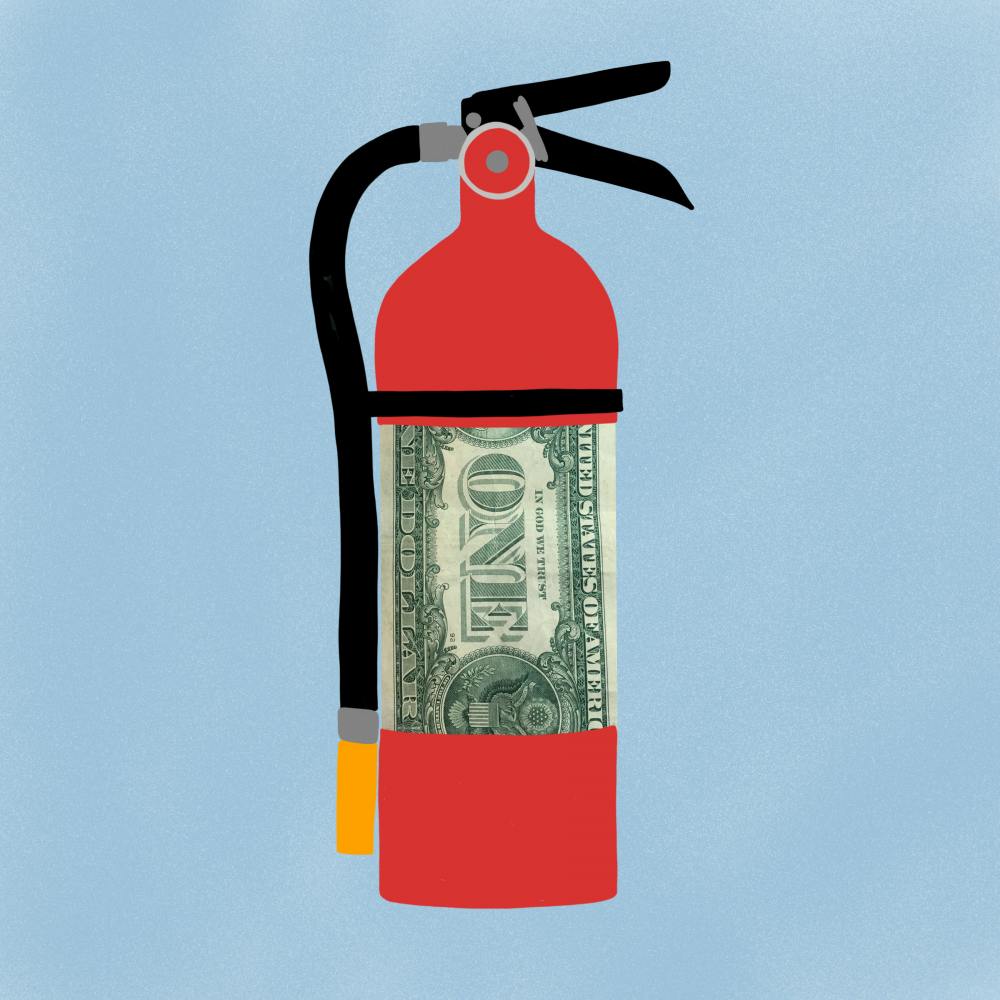One of the earliest warnings students get during their first-year orientation is the prospect of receiving a fine for committing a fire safety violation. The risk of increased financial burden is meant to dissuade students from violating the fire safety policies at the University. Fines, however, not only disproportionately impact lower income students but also are not the best method for preventing continued violations of the fire safety code. Instead, we should use a community service based system to better discourage these violations as well as make the punishment more equal across the board.
For the majority of fire safety violations, the first offense will result in a student – or multiple students if the room has more than one occupant — receiving a warning. For subsequent offenses, the student will pay a flat-rate fee. For some special violations such as possessing highly flammable objects or tampering with smoke alarms, students receive a fine on the first offense. Tampering with life devices may also result in disciplinary action on the first offense, while for other safety violations the Housing Office may recommend a student to the Dean of Undergraduates after repeated violations.
Fines range from $50 all the way to $200. Because these fines are at a flat rate, they will naturally affect lower-income students more than wealthy students because the fine will be a larger proportion of their families’ incomes. Even more problematic is that a family may have to pay the fine even when the fine was the fault of the student. 46% of Americans say that they would be unable to pay for a $400 surprise bill; a fire safety fine could put them in serious financial jeopardy, considering it could put so many Americans halfway to having an economic crisis. A $400 surprise bill is already too easy to incur, so the University should not make this worse for families who are not actually responsible for their student’s actions. Ultimately, for many of us a fine is just going to show up on our bills, and our parents will have to pay for our mistakes. In other situations, a person’s family may be unable or unwilling to pay the fine, so the student will need to get a campus job in order to pay the fine. It is unideal for the punishment for violating the fire safety policies to affect students disproportionately, because it also means that some will feel more dissuaded from continuing their violations than others.
If it is true that all the violations listed in the fine schedule are so serious that room occupants need punishment to stop them from committing the offense again, then there is no reason to have a system which discourages some people more than others. Either some students are being dissuaded too much, or others are not dissuaded enough. Therefore, we need to have a system which is more equal in its approach to stopping violations, one which is more effective in actually stopping repeat offenses. A far better method than fines is to have violators do a certain number of community service hours helping facilities workers around campus. Of course, this would be after receiving a warning or two.
Unlike fines, spending time doing community service will be a more equal punishment, as time is a resource in which University students are in desperate need. This is not a perfect solution, as some students will naturally have more responsibilities and time commitments than others, but it is better than the alternative of flat-rate fines. Time is something incredibly important to all students, regardless of their economic backgrounds. The difference between an hour for a low-income versus high-income person is going to be much smaller than the difference between $50 for either of them. The loss of time is a far more compelling punishment for people who have the means to repeatedly commit the same fire safety violation over and over again because they know that they can afford to pay what is for them a small amount of money two or three times a year when fire safety inspectors come to their rooms.
The Housing Office could allow violators to select a weekend on which to do their service in order to accommodate pre-existing commitments. Another advantage to the community service based system is that it will encourage all students, not just those whose families have lower incomes, to take fire safety violations seriously. If it is such a big deal for someone to have a calendar on their door, somehow obscuring a means of egress, then we should actually treat these violations like they matter and not use them as a means to collect money from people living in University housing.
Hunter Campbell is a junior politics major from Sunderland, Vermont. He can be reached at hunterc@princeton.edu.









